Published Dec 25, 2024 | 9:00 AM ⚊ Updated Dec 25, 2024 | 9:00 AM
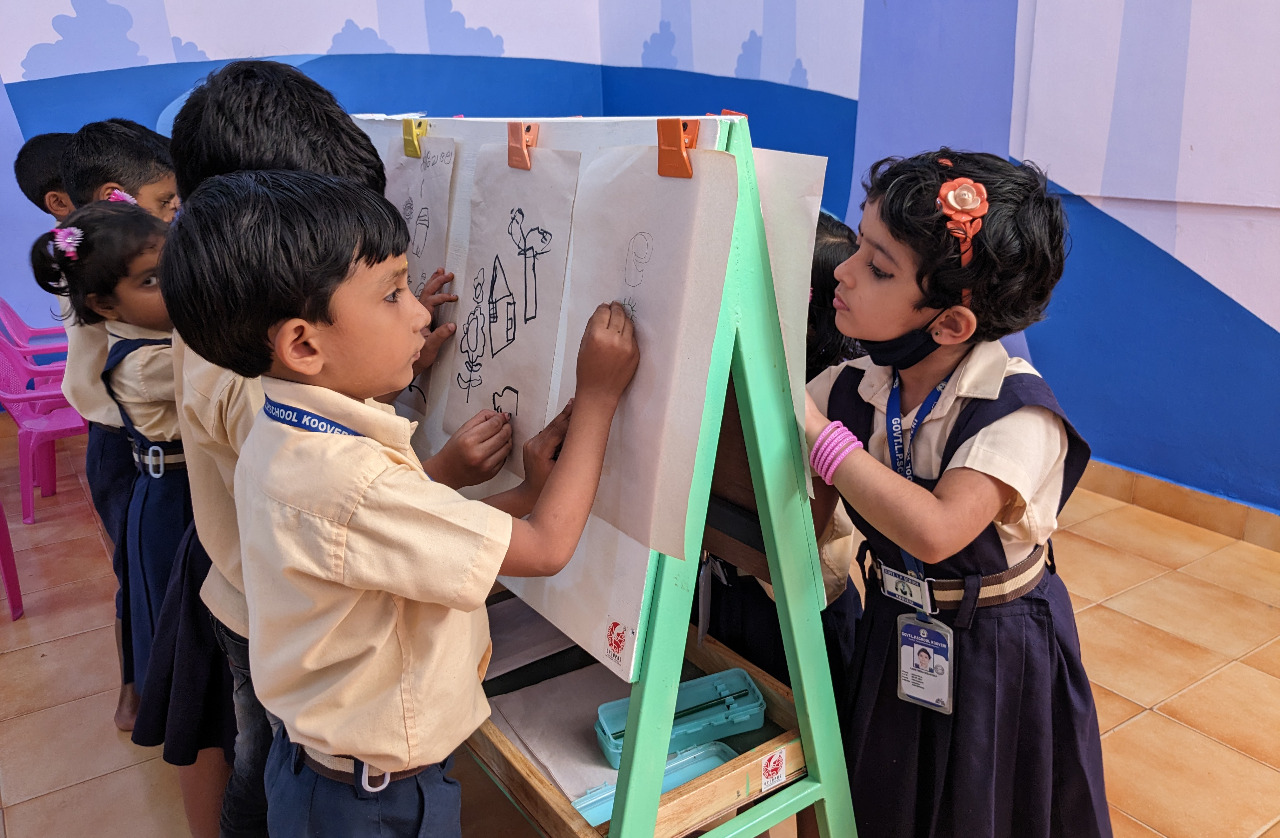
Karnataka eases class 1 admission norms
Kerala is painting a vibrant canvas of early childhood education with Varnakoodaram (literal translation: colourful tent), a groundbreaking initiative that nurtures the minds and imaginations of pre-primary children.
A first-of-its-kind programme in India, Varnakoodaram goes beyond textbooks to foster holistic development — physical, cognitive, emotional, and social — through activities creative and sensory.
By transforming classrooms into hubs of inquiry, wonder, and critical thinking, the initiative is redefining how young learners explore the world around them.
Varnakoodaram, launched by Samagra Shiksha Kerala (SSK), is an ambitious programme aimed at revolutionising preschool education.
It prioritises the total development of the child, focusing on physical, emotional, cognitive, and aesthetic growth.
Drawing inspiration from national and international best practices, this initiative blends local insights with scientific methods to create a unique Kerala model for preschool education.
“We conceived this initiative under the Strengthening Teaching-Learning and Results for States (STARS) programme of the Ministry of Education,” an SSK official told South First.
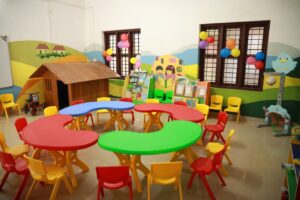
An activity corner of Varnakoodaram
The STARS programme supports reform to improve the quality and governance of school education in the states of Himachal Pradesh, Kerala, Madhya Pradesh, Maharashtra, Odisha, and Rajasthan.
Comprising national and state components, STARS focuses on strengthening education in the first few years of school, by addressing learning assessment systems, teacher performance and classroom practice.
It aims at decentralised management to better cater to the needs of little children.
“As the only southern state selected as a ‘lighthouse state,’ Kerala has set an example for the nation by implementing the Varnakoodaram programme, a model for holistic early childhood development,” the official said.
The programme, first launched in 2021-22, is currently being implemented in 848 pre-primary schools in the state.
The state government had earlier announced that the initiative would cover 1,108 pre-primary schools. Efforts are on to implement it in the remaining 260 institutions.
Varnakoodaram aims at providing children diverse, experience-based learning opportunities.
It emphasises the critical early years of education, and introduces activity-oriented curricula designed by the State Council for Education Research and Training (SCERT).
There are 30 themes that children can easily connect with, including soil, water, plants, animals, and transportation.
These themes are curated to engage children’s senses and stimulate their curiosity.
Recognising that learning extends beyond the classroom, Varnakoodaram encourages schools to utilise both interior and exterior spaces for innovative and cost-effective setups.
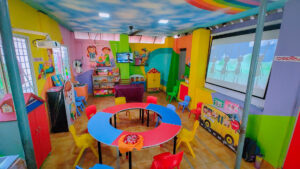
A classroom of Karamana HS LPS in Thiruvananthapuram
Schools are provided child-friendly furniture and equipped to create various interactive “corners”. They will be equipped with:
– Performance Areas: Spaces for children to showcase their talents
– Literary Areas: Spaces that promote language learning and storytelling
– Drawing and Music Corners: Stimulating artistic and creative development
– Digital Corners: Equipped with TVs, tablets, and performance recorders, with the support of Keltron
– Kids Athletics Zones: Offering customised activities to enhance motor skills
Amul Roy, Kerala programme officer, SSK, told South First, “Varnakoodaram aims to provide every child in Kerala access to quality and scientific preschool education. By focusing on developmental areas such as physical motor skills, language, cognitive abilities, social-emotional learning, and creative expression, the programme ensures a strong foundation for lifelong learning.”
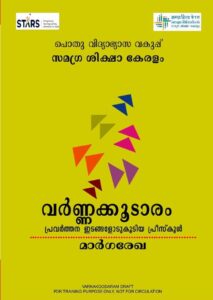
The handbook
To ensure effective implementation, a handbook outlining models and guidelines has been released.
Schools have the flexibility to adopt options that best suit their infrastructure and needs.
While Varnakoodaram has been hailed as a transformative step in early childhood education, gaps in its execution raise concerns about its long-term impact.
One significant drawback is the absence of a scientific mechanism to assess the tangible improvements in children resulting from the programme.
Experts argue that while the initiative focuses on holistic development, there is no standardised method to measure a child’s progress in areas such as cognitive skills, social-emotional learning, or creative expression.
This lack of data-driven evaluation, some people apprehend, could hinder the ability to identify the programme’s effectiveness; this might impede efforts to address in a timely manner the areas that require fine-tuning.
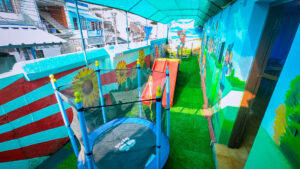
One of the activity corners at Karamana HS LPS in Thiruvananthapuram
Many parents, especially in rural and economically weaker sections, remain unaware of the importance of holistic development during the early years, and worry about inadequate stress on academic performance.
Parents might wonder whether the new-fangled system caters to the basic reading and writing skills conventionally associated with school-going.
This limited perspective could undermine the initiative’s goal of fostering well-rounded individuals.
“There’s a need for awareness campaigns targeted at parents to help them understand that early childhood education is not just about textbooks or rote learning,” an SSK official said.
By laying a robust and nurturing foundation in the critical early years, this initiative could transform schools and shape well-rounded individuals.
The impact of a system that caters to the emotional and aesthetic abilities of children cannot be measured in the short term, and could extend far beyond preschool classrooms. Ultimately, this might be the way to create a society that nurtures curiosity, creativity, and lifelong learning.
(Edited by Rosamma Thomas)

